Author

Matthias Wilkens
Matthias is responsible for global university programs. Particularly Matthias is managing the HoverGames, North American EcoCar challenge and the EMEA NXP CUP.

Robots here, robots there, robots everywhere! The world is embracing robotics regardless if it is in your living room for cleaning the floors, cutting your grass, delivering your sushi or into a warehouse to pick the products you have ordered via Internet and box them to be shipped to you. All of those have a common thread of thinking: autonomous robotics.

For 8 years the NXP Cup in Europe, Middle East and Africa (EMEA) have made the hearts of students beat faster, mostly right before the speed race, as one of the student team members place their 1/18 scale autonomous electric car model on the race track and hope that the car will handle the unknown layout without tumbling or flying out of a curve.
Autonomous car racing is not new, but the NXP Cup brings new ideas to the game such as additional challenges for obstacle avoidance, emergency braking, precision driving and speed zone management. The vehicle is powered by 2 rear motors (brush or brushless), steered by one servo in the front and can hold as many NXP MCUs and MPUs as the team wants to load on the small chassis, the whole powered with one battery and, of course, no wireless connectivity.
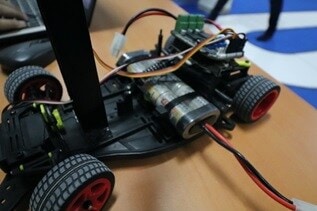 The
2019/2020 season set a new record with the
signing of 160 teams
across 12 countries from Morocco all the way to Lebanon, passing by the
Netherlands. Some high school and university students with teams of maximum 3
members have worked on their vehicles since December 2019 to prepare for the
regional qualification races.
The
2019/2020 season set a new record with the
signing of 160 teams
across 12 countries from Morocco all the way to Lebanon, passing by the
Netherlands. Some high school and university students with teams of maximum 3
members have worked on their vehicles since December 2019 to prepare for the
regional qualification races.
Alas, as the schedule was being finalized, the COVID-19 pandemic hit around the world and put the teams on hold, away from their labs, forcing them to work via remote classrooms.
However, thanks to NXP Cup’s sponsor Electromaker.io, 10 teams have registered for the NXP Cup Electromaker Innovation Challenge with the task of creating, developing and documenting their work on the Electromaker.io project platform. Student teams have been aiming at the 3 top prizes of Euro 1000, 500 and 250 with winners announced on Friday May 8th. Despite the COVID-19 situation, they have worked to create the best out of a difficult situation: not being able to run their cars in public and face their competitors on the racetrack.
Three projects are making the headlines for the Electromaker NXP Cup Innovation Challenge, all selected after a difficult evaluation, as many have done an outstanding work in creativity, documentation and execution on their racecars.
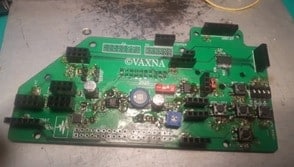 A great
round of applause goes to Team
VAXNA
from Střední škola informatiky elektrotechniky in
Rožnov pod Radhoštěm (Czech Republic) who took the top
winnings of the pack as they worked in equipping their bolide with laser,
encoders and special 3D printed parts to handle the new equipment. Most
importantly, they have managed, despite all the COVID-19 restrictions and
limited access to equipment, to create their own K64F PCB circuitry and hand
solder the parts on it, making it a real challenge for high schoolers working
from home. The documentation shared on the Electromaker platform for downloads
is very comprehensive, well organized and the videos of their car running
demonstrates their achievement.
A great
round of applause goes to Team
VAXNA
from Střední škola informatiky elektrotechniky in
Rožnov pod Radhoštěm (Czech Republic) who took the top
winnings of the pack as they worked in equipping their bolide with laser,
encoders and special 3D printed parts to handle the new equipment. Most
importantly, they have managed, despite all the COVID-19 restrictions and
limited access to equipment, to create their own K64F PCB circuitry and hand
solder the parts on it, making it a real challenge for high schoolers working
from home. The documentation shared on the Electromaker platform for downloads
is very comprehensive, well organized and the videos of their car running
demonstrates their achievement.
 The 2nd
prize was awarded to team
RASCar2020
from the Germany University of Lübeck, a second time participant
university into the NXP Cup EMEA. The team’s description of the car on
the Electromaker.io platform says “Badass robot car developed by
reasonably advanced monkeys”… Well those students did a great
job in creating a custom assembly board to hold all of the connections of both
FRDM-K66F and FRDM-KL25Z boards in a central and organized way, adding 6
ultrasonic sensors, IR ground sensors and encoders to name just a few of the
added features to this race car. They mounted a large LED Array (they call it
the “LED banana”) to help with light management and
comprehensively documented the logic and algorithms for managing the signal
from the Pixy2 camera and a 2nd line camera mounted just above it.
The 2nd
prize was awarded to team
RASCar2020
from the Germany University of Lübeck, a second time participant
university into the NXP Cup EMEA. The team’s description of the car on
the Electromaker.io platform says “Badass robot car developed by
reasonably advanced monkeys”… Well those students did a great
job in creating a custom assembly board to hold all of the connections of both
FRDM-K66F and FRDM-KL25Z boards in a central and organized way, adding 6
ultrasonic sensors, IR ground sensors and encoders to name just a few of the
added features to this race car. They mounted a large LED Array (they call it
the “LED banana”) to help with light management and
comprehensively documented the logic and algorithms for managing the signal
from the Pixy2 camera and a 2nd line camera mounted just above it.
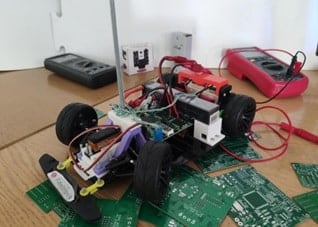 The
Knight Rider Kitty
car from AGH University in Poland is the 3rd performer of this challenge,
using the Alamak chassis model developed for the NXP Cup EMEA competition.
They developed an array of 3D printed mechanical improvement to the vehicle
including steering, camera mount, bumper along with new circuitry to manage
NXP’s MKV58 and MKL25Z MCUs, external LEDs a possible 2nd line camera
and laser sensors. AGH University is one of the steadiest participants of the
NXP Cup EMEA over the years and has been using its passed experience to
produce another very interesting and well-developed autonomous car.
The
Knight Rider Kitty
car from AGH University in Poland is the 3rd performer of this challenge,
using the Alamak chassis model developed for the NXP Cup EMEA competition.
They developed an array of 3D printed mechanical improvement to the vehicle
including steering, camera mount, bumper along with new circuitry to manage
NXP’s MKV58 and MKL25Z MCUs, external LEDs a possible 2nd line camera
and laser sensors. AGH University is one of the steadiest participants of the
NXP Cup EMEA over the years and has been using its passed experience to
produce another very interesting and well-developed autonomous car.
The creativity of the teams engaged in this challenge demonstrate the pool of talent that our schools and universities are preparing to enter the engineering industry in EMEA. With focus on innovation, discipline and grit to deliver, despite the difficult situation we have experienced in this early part of 2020, shows that the future is bright for those students joining the NXP Cup Challenge.
The NXP Cup EMEA continues for the 2021 season and enrollments are already on the rise as students from this “interrupted season” take the chance, once more, to improve their racecars and hold a chance to show the world their achievement in the first quarter of 2021. Join the NXP Cup EMEA by signing up or join the community to learn more about next seasons’ challenge.
Tags: Automotive, Industrial

Marketing Communications Specialist
Matthias is responsible for global university programs. Particularly Matthias is managing the HoverGames, North American EcoCar challenge and the EMEA NXP CUP.
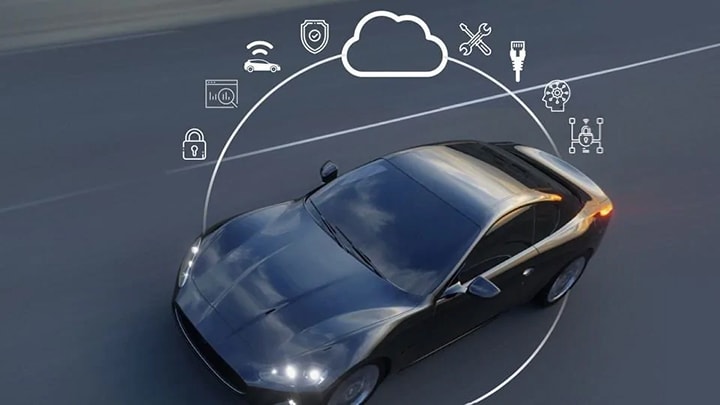
June 19, 2020
by Ross McOuat
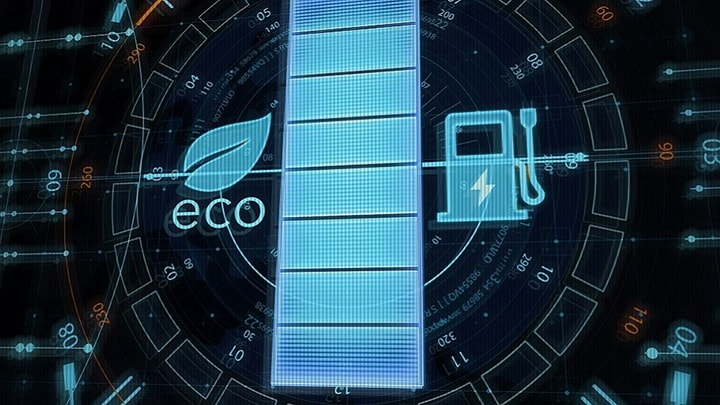
July 29, 2020
by Davina Moore
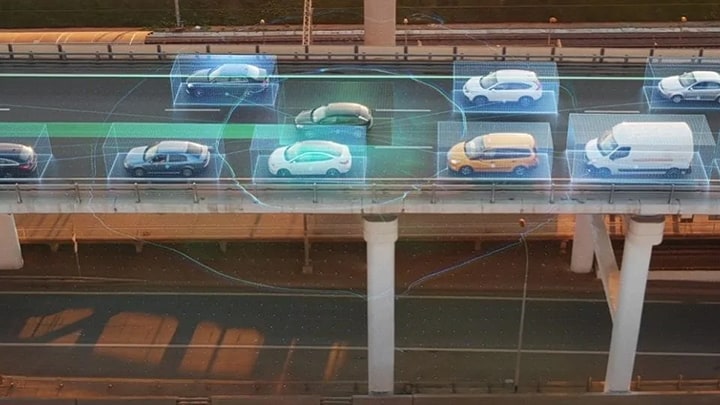
July 30, 2020
by Jason Deal